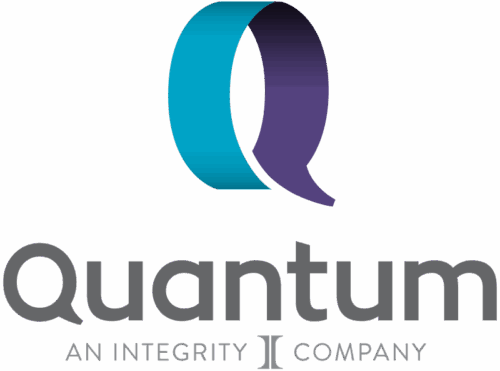A Qualified Opportunity Fund (QOF) is an investment vehicle that is organized as a corporation, partnership or LLC for the purpose of investing in Qualified Opportunity Zone (QOZ) property. Investors can use QOFs to defer and potentially reduce tax on recognized capital gains while helping improve and revitalize communities identified as distressed or low-income by the federal government.
Paying some portion of capital gains taxes cannot be deferred indefinitely, but the investor won’t actually pay capital gains taxes on a QOF until they file their 2026 tax return in 2027. Updates to the incentives by the U.S. Treasury Department in 2019 added new provisions which can decrease the amount of tax owed by holding the property longer. Trusts and other legal entities can be utilized to create additional tax advantages.
Per IRS rules, a Qualified Opportunity Fund must hold 90% of its assets in Qualified Opportunity Zones.
++++++++++++++++
Qualified Opportunity Zones
The 2017 Tax Cuts and Jobs Act (TCJA) established the Qualified Opportunity Zone program to provide a tax incentive until the end of 2026 for private, long-term investment in economically distressed communities.
There are approximately 8,700 Opportunity Zones currently recognized within the 50 states, the District of Columbia, U.S. possessions, and federally-recognized Indian tribal government land. Any new nominations must be certified by the U.S. Treasury Department.
A Qualified Opportunity Fund must improve property, not just purchase it. The fund must make “substantial improvements” to a property which are equal to its value at the time of purchase, done within a 30-month period. For example, if a QOF purchases a building for $1 million, they have 30 months to make a minimum of $1 million worth of improvements to that building. |
++++++++++++++++
How It Works
Capital gains taxes are owed when an investor sells assets which have been held longer than a year—assets like stocks, bonds, jewelry, coin collections, art, businesses, real estate, etc.—based on the difference between the basis, or what the investor paid for the assets, and their appreciated value at the time of sale.
The Opportunity Zone program allows for the reinvestment of capital gains amounts due from the sale of appreciated assets into a Qualified Opportunity Fund within 180 days from the date of the sale of the assets. There is no requirement to invest in a like-kind property to defer the gain.
The Qualified Opportunity Fund then invests in a Qualified Opportunity Zone property or properties. Within a 30-month period, the QOF is expected to make substantial improvements to the property or properties purchased in an amount equal to the property value amount at the time of purchase.
The Potential Benefits
- Deferral of Capital Gains Tax
In general, the main benefit of a QOF is that you can defer paying capital gains taxes until 2027, when you file your 2026 federal income tax returns.
- Holding Longer Reduces Capital Gains
Updated Treasury rules mean keeping the investment longer can benefit you more, as long as the Qualified Opportunity Zone property appreciates in value. There are step-ups in the tax basis which occur at years five, seven and 10, which reduce capital gains taxes owed, specifically:
If you hold on to the investment for more than five years, your cost basis increases by 10%. If you hold for more than seven years, your basis increases by 15%. And after 10 years, you’ll owe no more capital gains on additional appreciation beyond what you will already owe for the 2026 tax year.
- Taking Income / Cash Distributions / Using Nonrecourse Financing
After the required property improvements, which must be made within 30 months but before the 2026 tax realization event, the QOF can start generating income. Some experts advise investors to use qualified nonrecourse financing to maximize the tax efficiency of annual cash distributions because the depreciation allowed on the tax basis attributable to the debt can shelter any taxable income and subsequent distributions.
- Selling the QOF
Any depreciation taken during the life of QOFs can permanently escape depreciation recapture if the QOF interest is sold, as opposed to selling the underlying QOZ property. While finding a buyer for a QOF entity isn’t necessarily easy, the benefits to the investor can be substantial.
- Using Trusts and Pass-Through Entities
Tax and estate attorneys in conjunction with CPAs and financial advisors can structure Qualified Opportunity Funds and set up pass-through entities and trusts around them in many different ways, depending on the goal and the unique situation of the investor. Real estate developers and other needed partners can be added, and Delaware LLCs can be used for federal income tax purposes.
- Multi-Generational Estate Planning
The estate planning benefits of Qualified Opportunity Funds can be multi-generational. For instance, QOF investors can gift their interests to grantor trusts, such as a “Children’s Trust,” without violating the tax rules. This can provide numerous tax benefits for ultra-high net worth (UHNW) individuals, particularly given that the additional lifetime gift exemption of $5 million provided to U.S. taxpayers by the passage of the 2017 Tax Cuts & Jobs Act will be disappear in 2027 unless new tax legislation is enacted.
Using a $5 million cash gift put into a properly structured QOF, trust and other required pass-through entities can benefit both the UHNW investor as well as future generations, allowing full pay-back of the $5 million gift along with the creation and retention of a cash-flowing asset with high appreciation potential for heirs.
The Potential Downsides
Because Qualified Opportunity Funds are new investment opportunities and tax planning options for taxpayers, these investments may involve risk and potential loss.
QOF’s are very complex tax and estate planning strategies, and must be created by attorneys and managed carefully by financial advisors and CPAs to follow all tax rules in terms of investments, timing and managing capital gains tax deferral percentages and payments.
Because this investment may not be appropriate for all investors, consult with your CPA, attorney, and financial advisor before pursuing.
Sources:
https://www.nerdwallet.com/article/investing/qualified-opportunity-funds
FOR ADVISOR USE ONLY, NOT FOR USE WITH THE GENERAL PUBLIC
The information provided here does not, and is not intended to, constitute legal advice or tax advice. All contents are for general informational purposes only. Readers should contact their attorney and/or accountant to obtain advice with respect to any particular legal or tax matter.
As a CERTIFIED FINANCIAL PLANNER™, former advisor and portfolio manager for one of the nation’s largest wirehouses, Andy understands what it is like to sit across from a client during good times, but more importantly, during bad times when markets are down.



